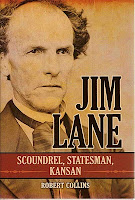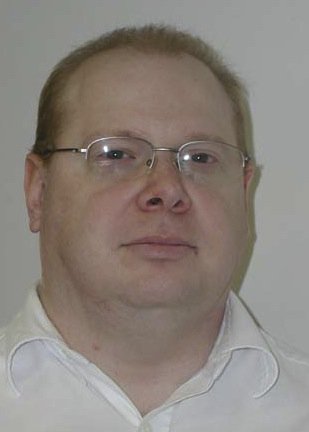 One of the benefits of Cons, without a doubt, is networking. You visit with old friends, discover new ones, and have a lot of fun along the way. One of those new friends from two cons this year, ConStellation Nebraska and ConQuesT, is fellow author Robert Collins. Robert’s published books include Stories Of Feminine Strength, Lisa’s Way, and True Friends. His short stories have appeared in venues like Aiofe’s Kiss from Sams Dot, Golden Visions, Pulp Empire and Tales Of The Talisman. But in addition to his speculative fiction, Robert also writes nonfiction. His works include the books: Ghost Railroads Of Kansas, Pieces of Kansas History, and Jim Lane: Scoundrel, Statesman, Kansan. So since research can be an area with which we writers struggle–how much to do, how to do it, etc.–I asked Robert if he had any thoughts he could share about research. Here’s what he sent me:
One of the benefits of Cons, without a doubt, is networking. You visit with old friends, discover new ones, and have a lot of fun along the way. One of those new friends from two cons this year, ConStellation Nebraska and ConQuesT, is fellow author Robert Collins. Robert’s published books include Stories Of Feminine Strength, Lisa’s Way, and True Friends. His short stories have appeared in venues like Aiofe’s Kiss from Sams Dot, Golden Visions, Pulp Empire and Tales Of The Talisman. But in addition to his speculative fiction, Robert also writes nonfiction. His works include the books: Ghost Railroads Of Kansas, Pieces of Kansas History, and Jim Lane: Scoundrel, Statesman, Kansan. So since research can be an area with which we writers struggle–how much to do, how to do it, etc.–I asked Robert if he had any thoughts he could share about research. Here’s what he sent me:
Historical Research & Science Fiction
by Robert Collins
Many Science Fiction authors know the value of researching history for their genre work. Usually they do so because they’re writing a time travel story and need to learn more about the era their characters are visiting. Occasionally, they do the research because they have the idea of, say, “the battle of Trafalgar in space” and want to make certain the plot follows the real event. However, most Science Fiction authors don’t think much about researching local history to get story ideas.
I write Kansas history as well as SF/F. I’ve done a great deal of research into the history of my home state. I’ve used that material to jump-start several of my fictional works.
One example is my biography of the “Bleeding Kansas” leader Senator Jim Lane. I found a newspaper story that claimed that Lane, in the run- up to the reelection for his Senate seat in 1865, had promised a federal post to 17 men. He made these promises to secure their support for him in the Kansas legislature come election time. Sure enough, the men came to Washington demanding Lane keep his promise to them. Lane gathered the men together one night. This is what he said, quoting from my book:
“What I did last winter, I did with the purest motives,” he asserted boldly. “I thought the state of Kansas needed me in the senate, and it was with that idea that I made those promises which I cannot now fulfill. If I have deceived you gentlemen, I believe that heaven will forgive me. But you, gentlemen, who should have voted for me from the purest and highest impulses–you were actuated only by sordid motives. You voted for me for a price and I do not think you are worthy in the sight of heaven of any recognition or consideration.” Lane lowered the boom. “I renounce all of you, and in the interest of the state of Kansas I will select an entirely new man for the position that you all covet, and have him appointed marshal.” With that Lane dismissed the men for the night.
Great, huh? But how to turn that into a story?
I chose to set my fictional version in the universe of my Frigate Victory stories. I’d already established that colony worlds are governed in a similar way to how United States territories  were governed during the frontier period. All that I had to do was adjust the anecdote so that it fit into the established background. My research not only led to a story that sold, but helped me fill in details about that universe. Finding such useful material will take some effort, but you’ll can control how much. Start by checking state histories. Look for events or personalities that appear interesting yet aren’t well-known. From there you can either take what you have and build, or dig deeper. If you’re willing to look, and send out inter-library loan (ILL) requests, you should be able to locate biographies on important state figures and histories of state events, periods, and trends.
were governed during the frontier period. All that I had to do was adjust the anecdote so that it fit into the established background. My research not only led to a story that sold, but helped me fill in details about that universe. Finding such useful material will take some effort, but you’ll can control how much. Start by checking state histories. Look for events or personalities that appear interesting yet aren’t well-known. From there you can either take what you have and build, or dig deeper. If you’re willing to look, and send out inter-library loan (ILL) requests, you should be able to locate biographies on important state figures and histories of state events, periods, and trends.
Statewide sources aren’t the only places where story and character ideas might be hiding. Most towns and counties have histories published. A local library will have their town or county history. Books on other communities can be obtained through ILL. Some states, like Kansas, have a State Library that handles ILL requests. If so that State Library will probably have a searchable website as well.
If you want to go as far as possible, consider historical newspapers. The Library of Congress has a handful of newspapers from each state digitized at their website. A few states like Colorado are doing the same with newspapers in their states. However, for most local papers you’ll have to look at microfilm. Libraries and historical museums are the first places to look for local newspapers on microfilm; state historical societies typically have all that state’s existing newspapers on microfilm.
Keep in mind that this is research for fiction ideas, not nonfiction books. Don’t get bogged down with accuracy or verification. Also remember that, when it comes to local history, there may only be one source.
One last point: there’s always a need for more books on local historical subjects. POD now makes it possible to publish a book without requiring a large print run. If an event, person, or trend interests you, writing a book could allow you to make use of your research, earn back what you spend, and maybe get you a few more readers.
Thanks, Robert, for those helpful tips. For what it’s worth…

